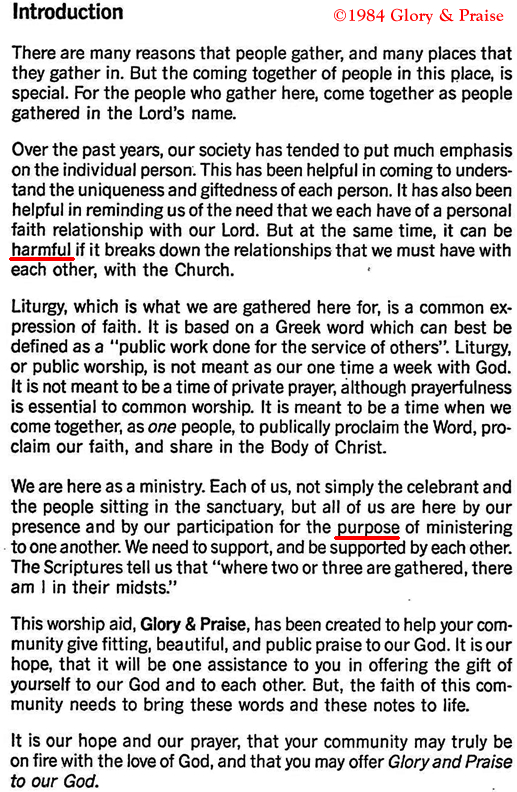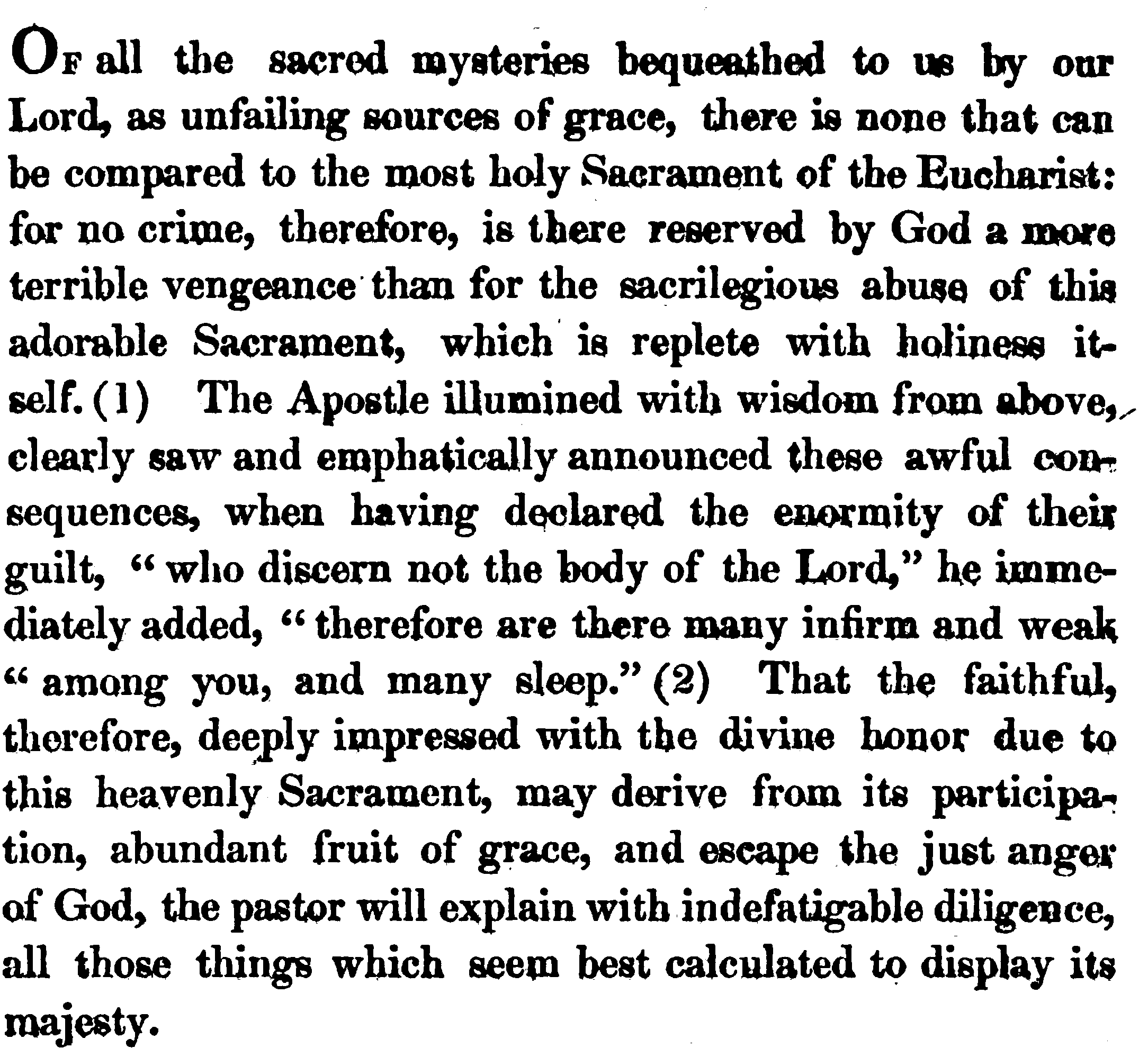Bishop Fulton Sheen & the 1984 Glory & Praise Hymnal
-
Bishop Fulton Sheen said that after the Second Vatican Council, the new emphasis on "social justice" had been taken too far, causing the Church to completely forget about (ignore?) personal salvation, personal prayer, personal acts of penance, and personal sins.
I noticed that the 1984 Glory & Praise seems to favor this:
-
JMO,
Do you have a source for the Bp. Sheen comment/quote? I'd like to read more about it.
Thanks
Mark -
I don't think this is a good example of what Bp Sheen is referenced as saying, unless one were to cherry pick from it. The thing ends with the telos of the community being on fire with the love of God, and offering worship to God, adumbrating the penultimate paragraph.
-
Mark,
I don't have the exact quote, and I don't want to misquote his Grace.
But he basically said, "Before the Council, we focused on individual salvation, and forgot about our neighbor. After the Council, we focused on social justice, and forgot about individual salvation."
By the way, based on some first hand sources, I don't necessarily agree with the first half of that statement. But I love Sheen. -
double post
-
JMO:
It just goes to show how horizontal of an interpretation that OCP has consistently given to the liturgy. This mindset seems to heavily permeate through the rest of OCP's liturgical offerings, including songs.Thanked by 1BachLover2 -
As an FYI for those who are not aware, OCP did not publish this hymnal at that time. It was the now-defunct North American Liturgy Resources (NALR) folks. OCP bought the rights a decade later.
-
True, Liam, but the mindset is still very much a part of the OCP modus operendi and is quite in line with their train of thought.Thanked by 1BachLover2
-
Actually, I would say the quote is more a mixture of horizontal and vertical than OCP would probably stress. The quote, while not how I would necessarily put things, is still more balanced than a cursory read here might indicate. (The reason I bother to distinguish them is that NALR tended to be more balanced and attentive to some details in some ways than its bigger competitors - I recall that a lot of people were rather sad when NALR went under and its material got absorbed by OCP, because the cultures of the two organizations were different, shall we day.)
-
At the risk of inciting controversy, consider the tone and content of the G&P Intro, what it says about the Liturgy and most especially what it does not say. Much of it is consonant with the language of the GIRM, yet one could read it carefully and not even get a whiff of what the Catholic Church really means to do by the celebration of Holy Mass. This is why traditionalists within and without the Church's canonical structures emphasize that the issues are primarily doctrinal and not aesthetic. Frankly, the text above could describe the worship of any mainline Protestant denomination. Either ecumenism has succeeded in breaking down every barrier separating Christians (has it?) or there is some eccesiological sleight of hand here. Now read only the first paragraph of what the Catechism of the Council of Trent has to say about the Eucharist and one can plainly see that we are today in a different world from that of our forebears, a world in which the language of the sacred cult has suffered an extraordinary devaluation of currency.


 TrentEucharist.png2168 x 1997 - 328K
TrentEucharist.png2168 x 1997 - 328K -
I disagree with the pertinence of the example and contrast made. You are contrasting quotes from very different contexts.
Welcome to the MusicaSacra Forum!
To participate in the discussions on Catholic church music, sign in or register as a forum member, The forum is a project of the Church Music Association of America.
Categories
- All Discussions21,295
- General Music Discussion8,304
- Job Openings217
- Management of Music Programs852
- Choral Matters534
- Church Documents and Rubrics528
- CMAA Notes304
- Events731
- For Newcomers: Read First26
- Sacred Polyphony550
- Hymnody876
- Gregorian Chant: General2,712
- ↳ Graduale Romanum and Liber Usualis370
- ↳ Graduale Simplex60
- ↳ Semiology64
- Vernacular Plainsong698
- Anglican Use and Anglican Chant68
- Organ, Other Instruments and Repertoire438
- New Composition/Works in Progress1,304
- Recordings234
- Music for Hispanic Ministry162
- Music Education: Children213
- Music Education: General222
- News Items245
- Positions Wanted3
- General Discussion: Catholicism740
- Amusements177
- General Discussion1,038
- Opinions119

